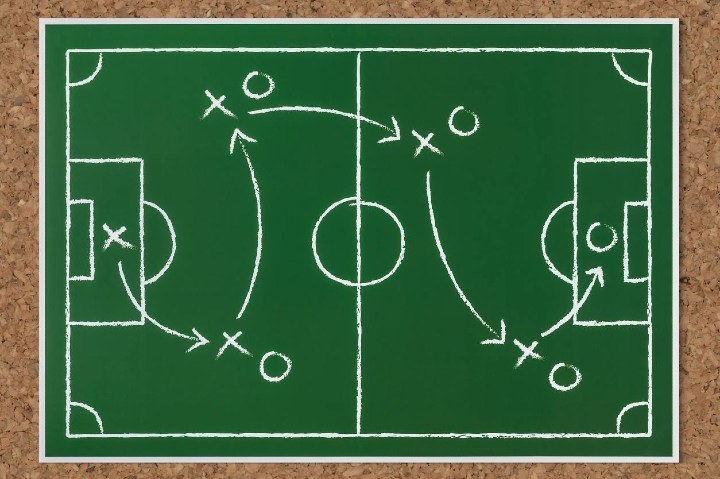“Football Coaching Strategies in Brazil: A Deep Dive into Jogo Bonito and Modern Tactics
Related Articles Football Coaching Strategies in Brazil: A Deep Dive into Jogo Bonito and Modern Tactics
Football Coaching Strategies in Brazil: A Deep Dive into Jogo Bonito and Modern Tactics

Brazil, the land of samba, Carnival, and, most notably, football, boasts a rich and storied history in the sport. Its unique style of play, often referred to as "Jogo Bonito" (the beautiful game), has captivated audiences worldwide. However, behind the mesmerizing skills and flair lies a complex web of coaching strategies that have evolved over time, blending traditional Brazilian philosophies with modern tactical approaches. This article delves into the multifaceted world of football coaching strategies in Brazil, exploring the historical roots, key principles, contemporary adaptations, and the challenges faced by coaches in developing the next generation of Brazilian football stars.
Historical Roots: The Essence of Jogo Bonito
Brazilian football’s identity is deeply intertwined with the concept of Jogo Bonito. This philosophy emphasizes creativity, improvisation, individual brilliance, and a joyful expression of the sport. Historically, Brazilian coaches prioritized developing technically gifted players who could dribble, pass, and score with flair. The focus was less on rigid formations and tactical structures and more on allowing players to express themselves freely on the pitch.
Legendary figures like Zizinho, Garrincha, and Pelé embodied this philosophy, showcasing their exceptional skills and inspiring generations of Brazilian footballers. Coaches during this era, such as Vicente Feola (who led Brazil to the 1958 World Cup victory), focused on fostering a positive and encouraging environment that allowed players to flourish. The emphasis was on nurturing individual talent and creating a team that could play with joy and passion.
Key Principles of Brazilian Football Coaching
While modern coaching techniques have been integrated, certain core principles remain central to Brazilian football coaching:
-
Technical Mastery: Brazilian coaches place a strong emphasis on developing players’ technical skills from a young age. Dribbling, passing, shooting, and ball control are honed through countless hours of practice. Futsal, a five-a-side version of football played on a hard court, is often used as a training ground to develop close control, quick decision-making, and spatial awareness.
-
Creativity and Improvisation: Unlike some European approaches that prioritize rigid tactical structures, Brazilian coaches encourage players to think outside the box and improvise on the field. Players are given the freedom to express their creativity and make spontaneous decisions, leading to unpredictable and often breathtaking moments of brilliance.
-
Individual Expression: Brazilian football celebrates individuality. Coaches recognize and nurture the unique talents of each player, allowing them to express their personality on the pitch. This emphasis on individual expression contributes to the flair and artistry that characterize Brazilian football.

-
Attacking Football: Brazilian football is renowned for its attacking prowess. Coaches prioritize creating goal-scoring opportunities and encourage players to take risks in the final third. This attacking mindset is deeply ingrained in Brazilian football culture and is reflected in the team’s playing style.
-
Jogo Bonito: This is not just a style of play but a philosophy that encompasses the joy, passion, and artistry of football. Brazilian coaches strive to instill this philosophy in their players, encouraging them to play with a smile on their face and to express their love for the game.
Contemporary Adaptations: Blending Tradition with Modernity
In recent years, Brazilian football has faced increasing competition from European teams that have embraced modern tactical approaches. As a result, Brazilian coaches have begun to adapt their strategies, incorporating elements of European football while retaining the core principles of Jogo Bonito.
-
Tactical Flexibility: While Brazilian teams traditionally favored a more fluid and attacking style, modern coaches are now emphasizing tactical flexibility. They are incorporating different formations and strategies to adapt to different opponents and game situations.
-
Defensive Solidity: Historically, Brazilian football has been criticized for its defensive vulnerabilities. Modern coaches are now paying greater attention to defensive organization and discipline, seeking to create a more balanced and resilient team.
-
Physical Conditioning: The demands of modern football require players to be in peak physical condition. Brazilian coaches are now incorporating more rigorous training programs to improve players’ strength, speed, and stamina.
-
Data Analysis: Like their European counterparts, Brazilian coaches are increasingly using data analysis to gain insights into their own team’s performance and to identify the strengths and weaknesses of their opponents.
Examples of Successful Modern Brazilian Coaches
- Tite: As the former coach of the Brazilian national team, Tite successfully blended traditional Brazilian flair with modern tactical discipline. He led Brazil to the 2019 Copa America title and implemented a more structured and organized approach to the team’s play.
- Abel Ferreira: The Portuguese coach of Palmeiras has achieved significant success in Brazil by combining European tactical principles with an understanding of Brazilian football culture. He has led Palmeiras to multiple Copa Libertadores titles, demonstrating the effectiveness of a hybrid approach.
- Fernando Diniz: Known for his unconventional and attacking style, Diniz has gained attention for his innovative tactical approaches. He emphasizes positional play and fluid movement, creating a unique and exciting brand of football.
Challenges Faced by Brazilian Football Coaches
Despite the rich history and talent pool, Brazilian football coaches face several challenges:
-
Brain Drain: Many of Brazil’s most talented players are scouted and signed by European clubs at a young age. This "brain drain" deprives Brazilian clubs of their best talent and makes it difficult for coaches to build long-term projects.
-
Infrastructure Deficiencies: Compared to Europe, Brazil lacks adequate training facilities and infrastructure. This can hinder the development of young players and limit the ability of coaches to implement modern training methods.
-
Financial Constraints: Brazilian clubs often struggle with financial difficulties, which can impact their ability to invest in player development and coaching staff.
-
Short-Term Expectations: Brazilian football culture is often characterized by short-term expectations. Coaches are frequently judged on immediate results, which can lead to a lack of patience and stability.
-
Balancing Tradition and Modernity: One of the biggest challenges for Brazilian coaches is finding the right balance between preserving the traditional values of Jogo Bonito and embracing modern tactical approaches. It is crucial to retain the creativity and flair that define Brazilian football while also developing a more structured and disciplined approach.
The Future of Football Coaching in Brazil
The future of football coaching in Brazil depends on addressing the challenges outlined above and embracing a more holistic approach to player development. This includes investing in infrastructure, improving coaching education, and fostering a culture of patience and long-term planning.
Brazilian coaches must also continue to adapt their strategies, incorporating modern tactical approaches while retaining the core principles of Jogo Bonito. By finding the right balance between tradition and modernity, Brazilian football can continue to produce world-class players and compete at the highest level.
Furthermore, there is a growing emphasis on sports science and data analytics in Brazilian football. Coaches are increasingly using data to track player performance, analyze opponent strategies, and make informed decisions. This data-driven approach is helping to modernize Brazilian football and improve the overall quality of coaching.
In conclusion, football coaching strategies in Brazil are a fascinating blend of tradition and modernity. While the core principles of Jogo Bonito remain central to the Brazilian approach, coaches are increasingly incorporating modern tactical approaches and data-driven insights. By addressing the challenges they face and embracing a more holistic approach to player development, Brazilian football coaches can ensure that Brazil remains a dominant force in the world of football for generations to come. The key lies in nurturing the unique talent and creativity of Brazilian players while also instilling the discipline and tactical awareness necessary to compete at the highest level. The future of Brazilian football depends on it.

